Challenges in MEL: Valuing Women’s Voices and Experiences
I won’t lie – it’s been difficult to feel positive about the gains we’ve made towards a more equal society this International Women’s Day. There are the regressive effects of the global pandemic, which have seen women disproportionately lose paid work while their childcare and home responsibilities have sky-rocketed as schools locked-down. And in Australia, we’ve also spent a dispiriting few weeks watching our political leaders systemically fail to listen to and value the experiences of women.
So I’m taking this opportunity to practice something we learned to do in 2020 – taking time out to reflect on the positives and the things we can control – how we can ensure that in our world of MEL (Measurement, Evaluation and Learning), the voices and experiences of women are being heard and acted upon.
Using Shawna Wakefield and Daniela Koerppen’s excellent 2017 paper as a guide, Applying Feminist Principles to Program Monitoring, Evaluation, Accountability and Learning, I can proudly say that our approach is fundamentally feminist.
As a matter of course, Clear Horizon promotes genuine participation, uses participatory techniques and fosters co-ownership throughout the MEL process. We recognise that evaluation is political, and that it has the power to influence significant change. As MEL practitioners, we need to be aware of the both the impact and biases we can bring to our MEL work and the broader social impact space. According to Wakefield and Koerppen, a feminist approach involves “self-awareness and potential biases of the professionals and institutions involved; looking at the importance of trust, time and resources to develop both the [MEL] processes and the capacities required to undertake them, and last but not least, accountability and continuous learning.”
For us, this means interrogating the gendered nature of our MEL framing, the way we do our questioning, analysis and reporting, and being on the lookout to ensure that any structural inequities of gender imbalances are not further entrenched by the act of evaluation. A good example of applying feminist thinking in MEL is when we are developing indictors for our measurement systems. As evaluators, we need to be aware of the choices and decisions that we make, considering how these are “inevitably shaped by the gender and power dynamics in a given context”.
For example, often when reporting on educational outcomes, the default is to look at measures such as the proportion of students who successfully completed learning. Which might paint a very different picture than if we were to look at the proportion of girls versus the proportion of boys successfully completing their learning. Or if we were to look at the types of subjects completed by gender, and whether the typecasts of STEM subjects for boys and “softer” topics for girls are still being played out with very real impacts on future career choices and outcomes. Using measures disaggregated by gender, for example, can provide deeper insights into the differing experiences and opportunities afforded to girls and women.
I was also immensely pleased to see one of our flagship techniques, Most Significant Change (MSC), recognised as a methodology with the potential to challenge inequalities and influence gender relations when supported by appropriate MEL systems. Clear Horizon often draws on MSC as a qualitative evaluation tool, largely due to its participatory, inclusive and empowering approach, ensuring the voices of the most disadvantaged can be given equal weight and providing space to interrogate any programmatic changes realised beyond the knowledge or lived experience of those developing the metrics of impact. It also values listening and story-telling qualities, and offers the ability to influence change through learning.
And while the above gives me hope in terms of our practices – while not perfect – being a good model for listening to and valuing the experiences of women, we’ve still got a lot a work to do to support feminist MEL approaches in the broader social impact space. Just as well we’re up for the challenge.
#ChoosetoChallenge
#IWD2021


